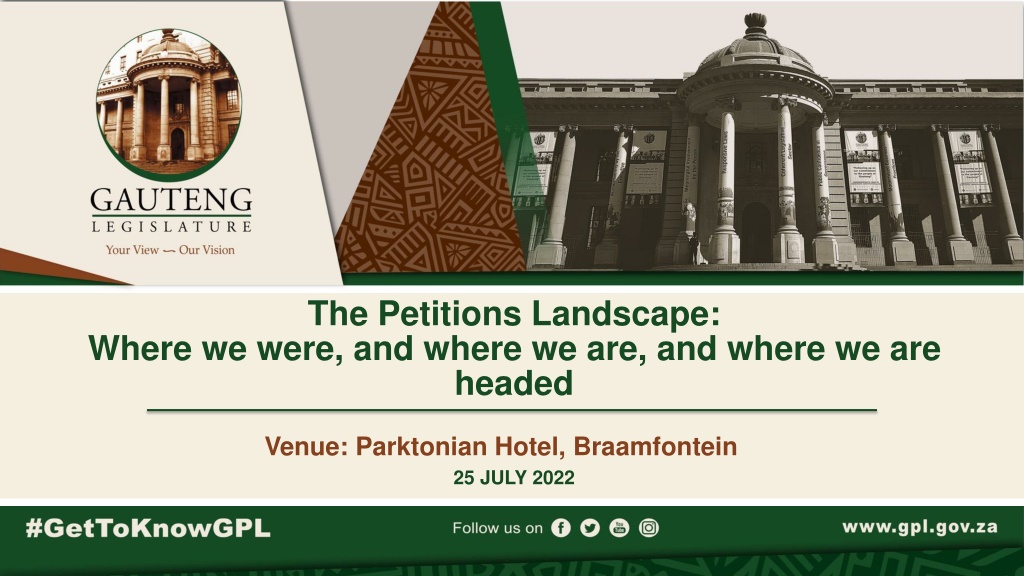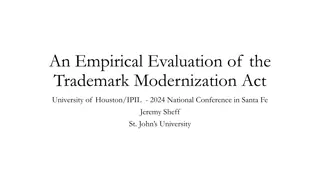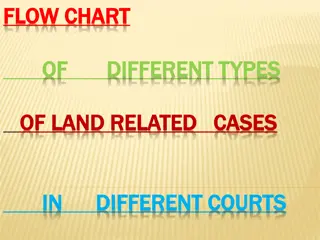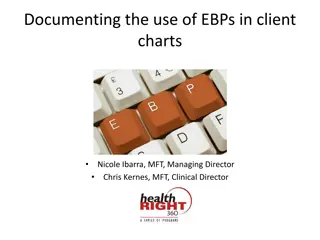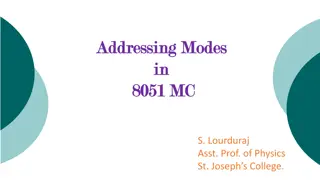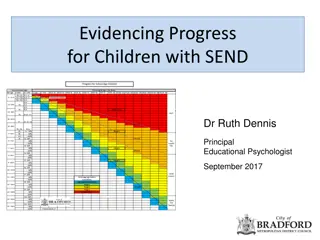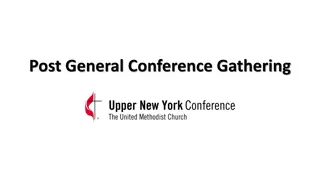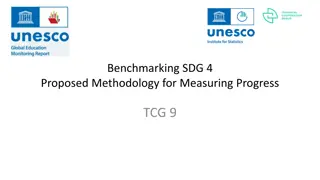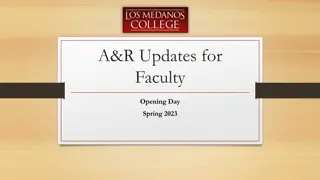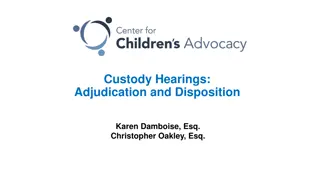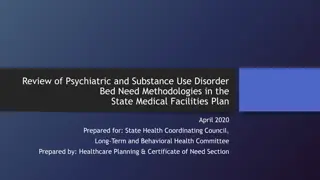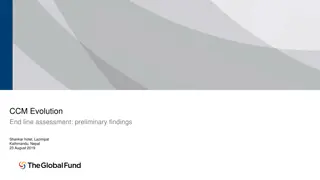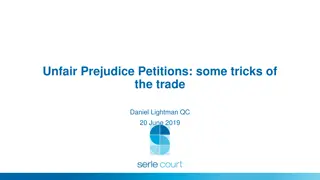Addressing the Petitions Landscape: Challenges and Strategies for Progress
The Petitions Standing Committee in Gauteng inherited a significant number of petitions dating back to previous legislative terms, presenting a backlog challenge. By addressing regional and gender distribution, as well as authority issues, the committee aims to clear the backlog through a six-pronged strategy. With a focus on resolving community grievances effectively, the committee has seen an upward trajectory in resolution rates, highlighting the importance of engaging with local government to prevent service delivery protests and community unrest.
Download Presentation

Please find below an Image/Link to download the presentation.
The content on the website is provided AS IS for your information and personal use only. It may not be sold, licensed, or shared on other websites without obtaining consent from the author. Download presentation by click this link. If you encounter any issues during the download, it is possible that the publisher has removed the file from their server.
E N D
Presentation Transcript
The Petitions Landscape: Where we were, and where we are, and where we are headed Venue: Parktonian Hotel, Braamfontein 25 JULY 2022
PRESENTATION OUTLINE Introduction Regional and gender distribution Authority distribution Highlight of petitions matters Backlog Clearance Strategy (six pronged) Conclusion
Introduction At the beginning of the 6th Legislative term (2019), the newly formed Petitions Standing Committee (PSC) inherited 545 petitions from the 5th and previous legislative terms. The regional origins of these inherited petitions is as follows: 36% of the inherited petitions emanated from City of Johannesburg, 19% emanated from City of Tshwane, 26% from the City of Ekurhuleni, 9% from West Rand District municipality and 10% from Sedibeng District municipality. An overwhelming 59% of all adopted petitions had been referred to local government. This signaled that there were issues with Section 79 Committees in municipal structures, when over half of adopted petitions in the 5th legislative term, were issues which municipalities should have resolved in the first place. The current Committee, as the successor were now saddled with the responsibility of dealing with all these historical petitions. A seemingly insurmountable situation. The Petitions Standing Committee is a Committee established in terms of the rules of the House and the Gauteng Petitions Act (no. 5 of 2002) to facilitate engagements, intervention and collective decision-making between the authorities in Gauteng, i.e. municipalities and government departments, and the people of Gauteng, being petitioners. The PSC is there to ensure that the voice of the people is heard and to also ensure that violent protests and burning of public infrastructure is avoided through using the petitions system. 3
Cont. The right to petition and the obligation to create mechanisms to facilitate petitioning is given and protected in Sections 17, 115, 118, and 195 of the Republic s Constitution, and the Gauteng Petitions Act (5 of 2002). Based on the recently adopted Petitions Standing Committee s (PSC) fourth Quarter Report (2021/2022), there are currently 738 ongoing petitions and of these, over 70% were inherited from previous legislative terms, which now fall onto this current Committee s shoulders to resolve. During the 2021/2022 FY the Committee achieved a 48.1% resolution rate, this is against the 83 adopted petitions over the four quarters. This is against a 26% resolution rate in 2020/2021 (COVID- 19 regulations), and a 16.5% resolution rate in the 2019/2020 Financial Year. An upward trajectory is certainly visible. The work of the Petitions Standing Committee is vast because it is a safety net, catching the sentiments of the disgruntled and despondent and inspiring hope where despondency is beginning to fester and breed. With over 60% of adopted petitions during the 4th Quarter of the 2021/2022 FY being referred to local government, the Committee was please to hear the updated State of Municipalities in Gauteng Report on the 25th of April 2022. 4
Cont. MEC for Co-operative Governance and Traditional Affairs: Mr Lebogang Maile stated that, It is important that issues raised in community complaints and petitions be urgently attended to by municipalities as they have the potential to result in service delivery protests or community unrest over delivery of basic services. MEC Maile further added that the Department wants to assist local government into becoming people-centred, centres of excellence that will be more effective in delivering services to citizens and bringing about a better life for all, in a qualitative manner . The Committee looks forward to seeing an improvement in how municipalities handle petitions referred to them for intervention as, petitions that fall on deaf ears have the unfortunate potential of being the fuel that feeds violent service delivery protests. 5
Regional and gender distribution (657) 33% F: 34% M: 66% 26% F:46% M: 53% 11% F: 70% M: 30% 11% F: 33% M:67% 19% F: 35% M: 65% The only Local Government where most petitioners are female
Highlight of petitions matters RDP Housing in nature 1996 C-form candidates Worrying amount of RDP misallocation petitions Incorrect billing Encroachment Lack of maintenance Formalisation requests and request for basic services in the interim. It is becoming increasingly clear that petitions offer themselves as a service delivery barometer. 9
Backlog Clearance Strategy 1. Bulkanisation: Is being implemented on Monday. MEC s/HODS are to enter a Compact Agreement with the GPL and the Leader of Government, committing to provide responses to bulk referred petitions in two (2) months. 2. Reviewal of the Petitions Legislature. 3. Cross Committee Referrals 4. Resuscitate E-Petition development. 5. Increased Hearings. 6. Strive towards increasing the administrative support within the Petitions Sub-Unit. 10
Conclusion The two (months) period will lapse at the end of September 2022, wherein Departments will furnish the PSC/GPL with the consolidated reports. Through this exercise the Petitions Standing Committee (PSC) is confident that a significant dent on the petitions backlog will be made. 11
